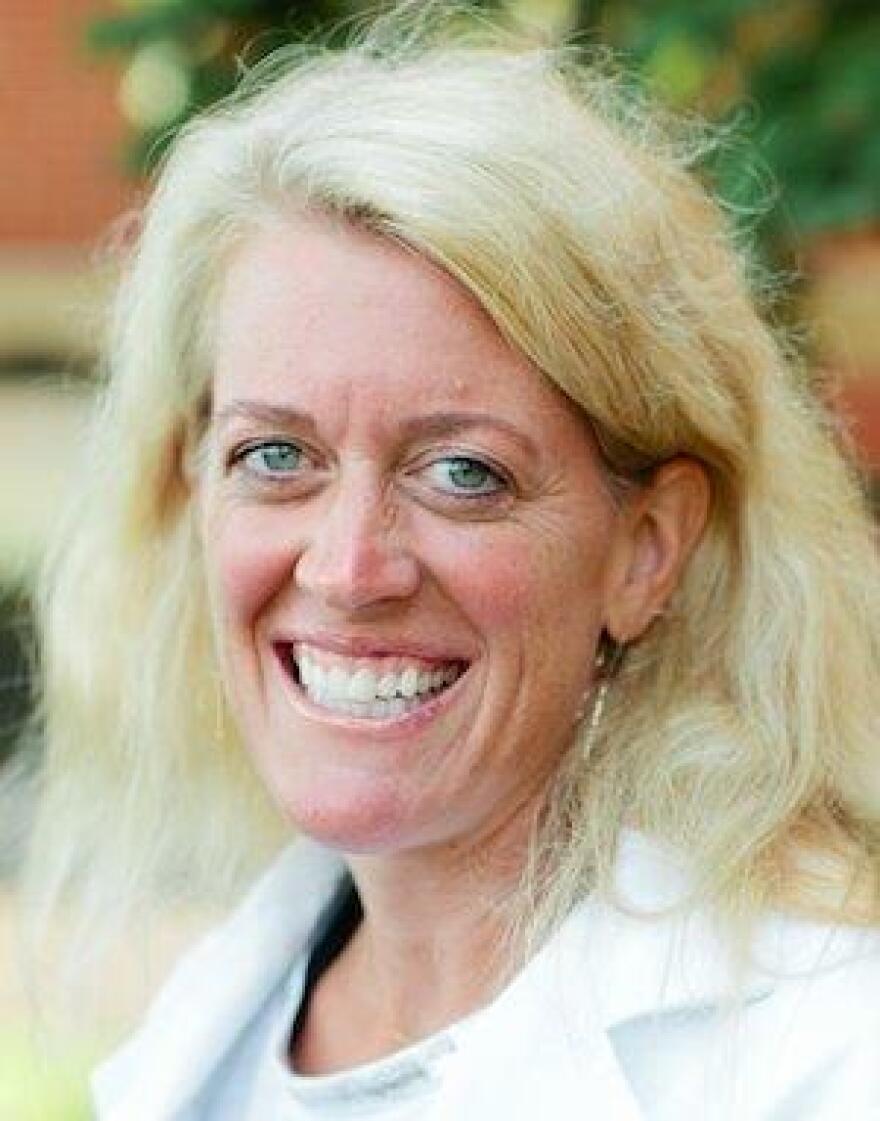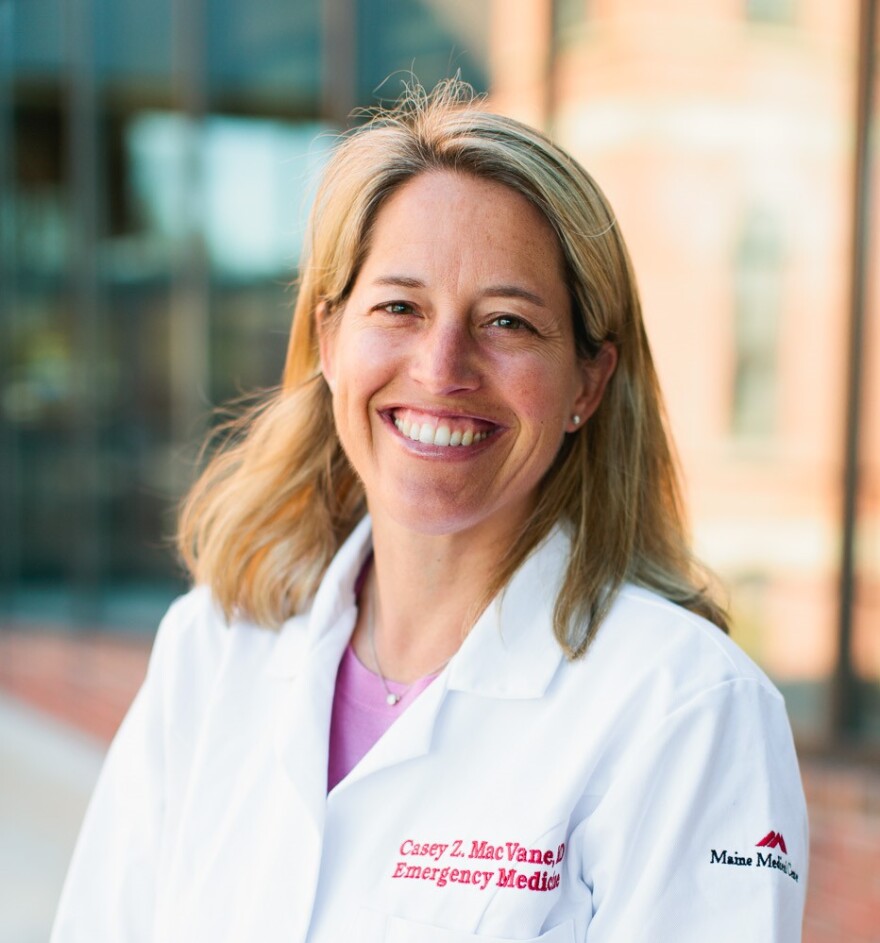The coronavirus pandemic has thrust us all into a new situation that can be disorienting. That's especially true for doctors and nurses who are treating patients with an illness they've never seen before. On Tuesday, the Mills administration launched a new statewide telephone line to support frontline workers, but there are also local efforts underway — including a new online peer support group at Maine Medical Center.
Health care workers don't typically line up to expose their vulnerabilities, especially the emotional kind.
"We have the kind of mentality of, we'll just get through this, because that's what we need to do."
But COVID-19 is testing that, says Dr. Christine Hein. She's the associate medical director of the emergency department at Maine Medical Center and the chief wellness officer.

"Medicine is a lot about pattern recognition, and we don't have that pattern here. So I would compare it to maybe flying an airplane without the instrument panel and without any vision."
Which creates a lot of new stresses for health care workers, often rooted in a fear of the unknown.
"There's the fear of bringing this home to your family. No one understands exactly how this is spread. I mean, we obviously know that it's spread by contact and droplets. But the risk of airborne transmission and how long it can survive on different materials becomes a really front and center concern for people who are kind of working in that environment all day long and then going home to their children and their partners."
This is, of course, a situation that health care workers across the country are dealing with. And because so far Maine has been spared a surge of COVID-19 cases, doctors like Hein are able to learn from their counterparts in other states that have become hot spots.
And Hein says one take-away is clear: "emotional support was something that was going to help sustain the ability to provide high quality care throughout this."
Maine Medical Center already has a peer support program to provide emotional first aid to doctors and nurses dealing with difficult situations. But now that staff are facing a pandemic, Hein says she and others realized that the hospital needed to provide regular check-ins dedicated solely to issues around COVID-19. So they started a weekly peer support group online. It's been going for about a month and typically draws between one to two dozen staff each meeting.

"I've been surprised at how useful I found the experience myself," says Dr. Casey MacVane, who works in the emergency department at the hospital.
"I think one of the things that came up in one of the first meetings that was really helpful was this idea of sort of anticipatory grief. And this idea of not knowing what's coming but feeling nervous about what's to come and feeling sad about what's to come. And that's a lot of it."
Some of that nervousness of what's to come has already played out in smaller ways. MacVane remembers showing up for work the day after Maine recorded its first confirmed case of COVID-19. Over the course of her shift, she learned there were several patients with COVID-19 at the hospital. People were showing up in the emergency department with respiratory symptoms. Policies and protocols changed rapidly, and MacVane had to put on what's called a PAPR suit for the first time. It's a full protective suit, with a gown, hood, and breathing apparatus.
"You can't hear very well and can't see very well, and you don't have peripheral vision. And it's a little bit harder to move around and do things, so it just feels very different."
Nurses helped MacVane get ready as a patient waited in a special room that contains contagious diseases.
"Just feeling that anxiety building as I had a sick patient in the room and I had to put everything on and go in there. And initially it felt like I wasn't sure what to do, and I couldn't bring a stethoscope with me, and I didn't know how I was going to listen to the patient, and the patient looked terrified."
Once she entered the room, she got her bearings. Performing her job in a protective suit may now feel less daunting, but MacVane says other things remain difficult, like visitor restrictions. Patients enter and stay in the hospital alone.
"We know how hard that is for our patients, and it's hard to be the bearer of that news and to watch our families wish their families could be with them, and to have to tell their families they can't be with their loved ones in the hospital."
When she meets with her peers online and hears about their experiences across different departments, MacVane says she's able to recognize — and then drop — some of the own stress she carries.
"I think if you pretend those things aren't there, sometimes it comes up in other ways, and I think it's okay to experience the grief or the anxiety or frustration or whatever it is, and I think allowing yourself to actually feel it allows you to be more productive and then move on with the rest of your life."
Dr. Hein, who helped launch the peer support program, says the meetings are especially helpful during a time when connecting with others is a challenge due to social distancing.
"The mere fact of seeing my dear colleagues’ faces and hearing their experiences, which really, pretty closely mirror my own experiences and my own emotions of caring for patients with COVID, it was very reassuring and almost centering to understand that everybody is feeling the same way."
Including a lingering question, say both Hein and MacVane, of how bad things could get.



